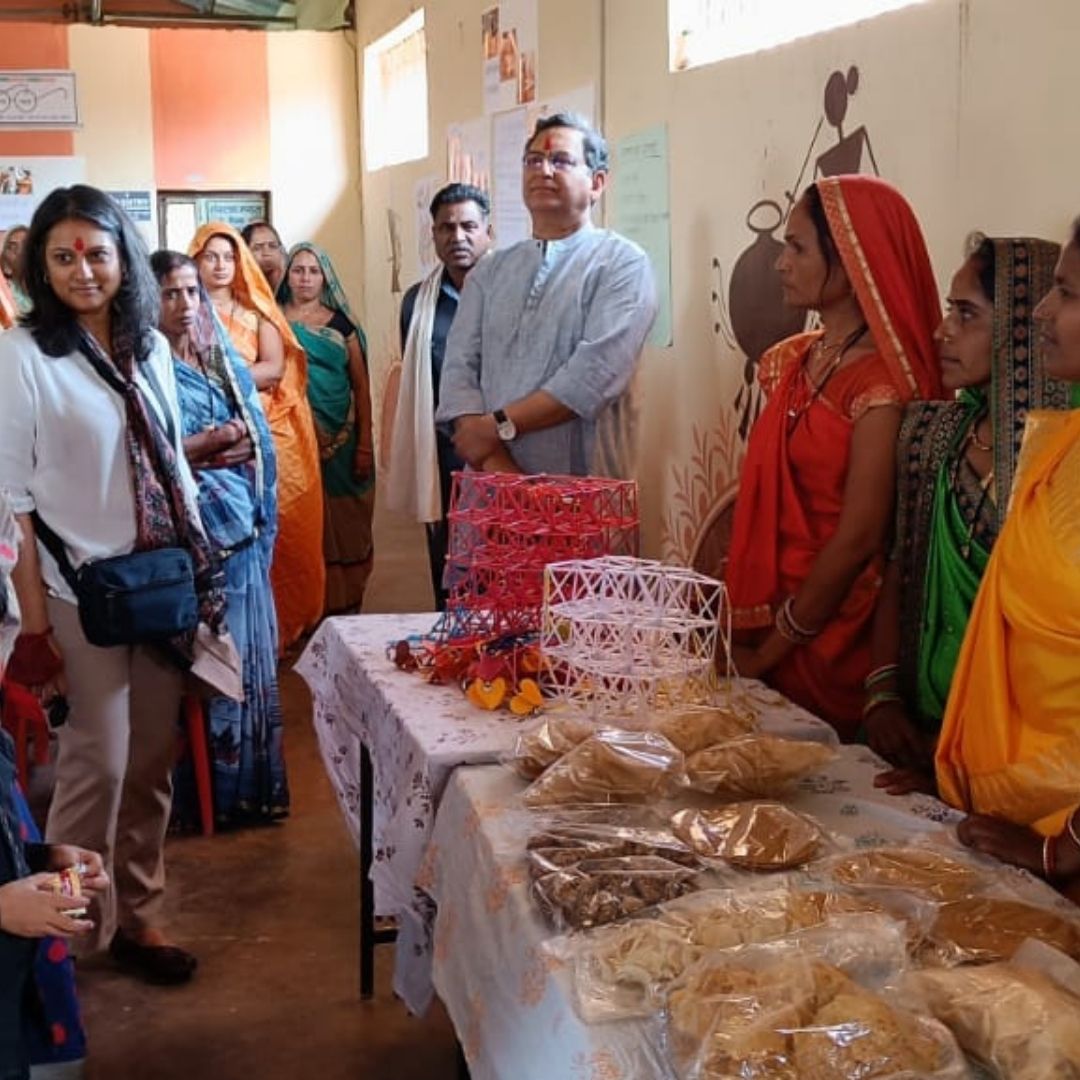
Image Credit: Samunnati
Boosting Agriculture Eco-System! Here's How A Chennai-Based Agri-Tech Startup Is Helping Women Lead FPOs In India
Tamil Nadu, 24 May 2022 11:57 AM GMT | Updated 24 May 2022 12:12 PM GMT
Editor : Ankita Singh |
A literature lover who likes delving deeper into a wide range of societal issues and expresses her opinions about the same. Keeps looking for best-read recommendations while enjoying her coffee and tea.
Creatives : Ratika Rana
Her primary objective is to inform, promote, educate and cultivate readers through writing.
Samunnati started with the aim of addressing the grievances of small-holding farmers. FPOs offer a massive window of opportunity into the small-holder agriculture ecosystem which contributes to 87 per cent of the total produce.
Till today, agriculture comprises over 50 per cent of employment in India and contributes over 20 per cent to the country's gross domestic product. While big farmers in several parts of the country find their way to make a profit while maximising their produce, small-holding farmers struggle to make ends meet, given the rising demand for wheat, and increasing fuel and fertilizer prices.
Therefore, a Chennai-based Agri-tech and value chain enabler is aiding small-holding farmers across India to organize themselves into farmer-producer organizations (FPO) and increase the quantity and quality of their produce.
Why Did India Start Having FPOs?
Farmer Producer Organization has farmers as its members and provides end-to-end support to small-holding farmers and technical services, marketing, processing and other aspects of cultivation inputs. The idea behind the initiative is that farmers, who are producers of essential foodgrains, can organize themselves into groups and can register themselves under the Indian Companies Act.
The goal is to enhance competitiveness and increase their opportunities in emerging markets. Generally, the goals of FPOs could be categorised under three broad objectives: farmers' need to access capital, markets and technology.
Smallholding farmers face several challenges while seeking to achieve the three objectives. While speaking to The Logical Indian, Pravesh Sharma, the Director of Samunnati Agro explained, "If a farmer has a small land-holding, then their bargaining power in the market is limited. Institutions hesitate to lend money to small farmers because they do not think that the farm is viable. On the contrary, a big farmer's viability is never in question".
The emergence of the FPOs started nearly 2 decades ago which seemed the answer to the growing needs of the farmers. So far, a total of 4465 new FPOs produce clusters have been allocated to Implementing Agencies for the formation of FPOs, of which a total of 632 FPOs have been registered.
Objective Of The Organization
Samunnati started with the aim of addressing the grievances of small-holding farmers. FPOs offer a massive window of opportunity into the small-holder agriculture ecosystem which contributes to 87 per cent of the total produce.In its journey, Samunnati has assisted more than 3000 FPOs through market linkages, lending capital and technology solutions amongst many others.
While speaking to The Logical Indian, Tulsa Prajapati, the Chairperson of Damoh Mahila Kisan Private Company Limited shared that she started working with Samunnati almost six months ago. She said, "Since there has been a change in the way we function, we have seen a magnanimous rise in our sales. The company conducted farmers' meetings during the lockdown and helped them understand the concept of FPO". Until June last year, Damoh FPO had more than 310 shareholders.
One of the biggest challenges they faced while convincing small-holding farmers was to make the initial investment of Rs 1,000. The first crop that we sold during the lockdown was wheat.
Hesitancy Of Joining The Company
The women were never anxious to join Samunnati since the company's representatives went from pillar to post to spread the message and benefits of joining the FPO. In the beginning, Samunnati lent ₹5 lakhs to the women farmers, which helped them massively increase their annual turnover to over ₹ 1 crore. Farmers in Madhya Pradesh grow several crops apart from wheat, like soybean, moong, urad, masoor and chana dal. Initially, the villagers were apprehensive about joining Samunnati.
Samunnati works with resource institutions in every state, which could be the local civil society organizations which directly work with the FPOs. Therefore, when Samunnati is associated with such resource institutions, it gets visibility amongst the local FPOs. The Madhya Bharat Consortium of FPOs promoted the women's FPO. The consortium of over 150 FPOs has promoted 15 all-women FPOs at the state level.
While collaborating with the company, the women farmers receive 1 per cent for every transaction. On average, the women are able to sell produce worth Rs 50 lakhs. Moreover, at least one transaction happens every two days. While speaking about their goals in the future, Prajapati replied, "We only want to prosper our organization. We look forward to making our mark in the Mandi and establishing warehouses. Moreover, we want to increase the number of shareholders from 310 to 450". Further, she also highlighted that only women are the stakeholders.
Samunnati makes provisions to enable the business in every possible manner. However, it does not supply inputs directly but enables the FPOs to connect to suppliers and finance the transactions. The company has been working with FPOs since 2016 and has helped over 3,000 FPOs since then. Moreover, the company is the only formal lender which provides loans to the farmers without any collateral.
Samunnati is looking to get associated with FPOs as partners, not clients. Pravesh Sharma tells The Logical Indian, "FPOs are the long-term answer to sustainability and value-addition. Moreover, the company is also looking forward to tapping into climate-smart agriculture through technology-enabled interventions and collaborative partnerships with international organizations. Varieties of seeds and some of the cultural practices pertaining to crops must evolve with the changing times. We want to be able to help the women with market linkages and technological services while helping them to adapt to long-term climate change".
 All section
All section














